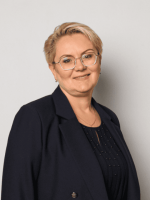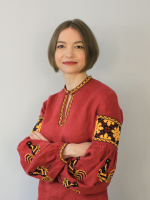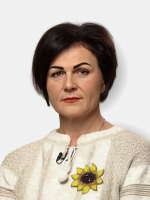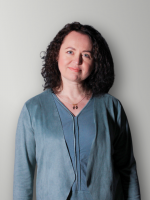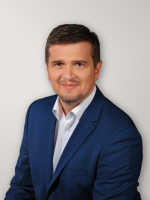Online Course
Fundamentals of Social Work with Families and ChildrenDo you feel that you lack the basic knowledge of social work? Are you facing challenges that require confident and professional solutions? Do you work with complex client situations and don’t know how to resolve them? Are you unsure how to fulfill the responsibilities assigned to you?

We have a comprehensive solution!
Fundamentals of Social Work with Families and Children
This is a basic online course that allows you to strengthen your competence anywhere, anytime, from any device — and immediately apply the acquired knowledge in your workplace.
Who is this course for?
Specialists and professionals in the field of child welfare, social workers, social work practitioners, and their assistants who work with families and children.
Representatives of NGOs, volunteers, students majoring in Social Work, representatives of Christian organizations, and professionals with related specializations.
This course is for you if you want to
Assess the needs of families and children and create effective support plans
Understand the fundamentals of social work, its key concepts, and the specific role of a social worker
Learn how to professionally assess the needs of a child and their family and effectively apply this assessment in practice
Master tools for documenting the case management process
Act in the best interests of a child who has experienced a traumatic event and support their emotional connection with their family
Gain skills to protect children from violence, neglect, and having their needs ignored
Work effectively with people with disabilities while upholding their rights and dignity
Understand the different types of families you work with and the factors that affect parenting capacity
Support a child’s right to a family by ensuring a stable and safe environment for their growth
This course includes:
modules
handouts
lessons
practical assignments
videos
expert speakers
Course Program
Module 1
Introduction to Social Work and Its Legal Foundations [5 hrs]
Module 2
Case Management in Social Work [5 hrs]
Module 3
Basic Principles of Working with Children and Families [5 hrs]
Module 4
Child Abuse as the Main Reason for Child Removal from Families [5 hrs]
Module 5
Working with Families Where a Child or Parent Has a Disability [6 hrs]
Module 6
Working with Specific Categories of Families [5 hrs]
Module 7
Ensuring the Child’s Right to a Family in Cases of Orphanhood or Deprivation of Parental Care [5 hrs]
Feedback

Viacheslav Bondar
Founder of the organization “You Too”, Coordinator of the “Ukraine Without Orphans” Alliance program in Kharkiv region
I am very familiar with this training—I have taken it myself and I truly believe in its transformational power.
One story that especially moves me is about a member of my team who manages a hub. For a long time, he perceived his role in a very limited way: he thought his task was simply to distribute humanitarian aid—food packages, hygiene items, and basic necessities.
At some point, I realized he had much greater potential, but he had not yet seen the bigger picture. I wanted to help him broaden his understanding of his role, so I recommended this training to him. What happened afterwards is truly inspiring. After completing the course, his worldview changed significantly. He began to understand that social work is not only about material support, but also about seeing the whole family, understanding a child’s needs, paying attention to safety issues, and providing emotional and psychosocial support.
He started engaging with people more deeply—not just handing out aid, but also taking time to listen to their stories. He began initiating conversations with colleagues about difficult cases, asking questions, sharing ideas, and analyzing how we could better support those we serve. His work became more conscious, holistic, and much more effective.
I sincerely believe this transformation was made possible by the training. It gave him the language, tools, and confidence to see his role in an entirely new way—and as a result, the community he works with is now receiving a completely different level of support.

Svitlana Kharchenko
Executive Director, Ukraine Without Orphans
After our staff completed the course “Fundamentals of Social Work with Families and Children”, we observed excellent results. We became familiar with certain legislative updates, improved the quality of our documentation, and received expert answers to questions that are not always easy to resolve on our own. An especially valuable aspect was the opportunity to discuss real-life cases in real time, exchange experiences with colleagues, and receive professional feedback.
I believe that one of the key outcomes of our cooperation with the NGO “ILDC” is the development of a truly professional approach to social work among my team members. We also noticed positive changes in our approaches to interacting with clients and colleagues. Communication has improved, as the training helped us deepen our knowledge and synchronize our efforts—which has had a positive impact on the quality of all work processes.
We are sincerely grateful for the opportunity to take part in this training and look forward to its continuation, where we can explore other important and relevant topics.

Viacheslav Puzanov
President, Heritage Foundation
I sincerely thank you and the team of the NGO “ILDC” for the opportunity to participate in this training. It was a valuable and meaningful experience for our team.
Our staff members are already actively integrating the acquired knowledge into their daily work. The practical benefits are particularly evident in the areas of communication, case management, and adherence to ethical standards. We have also noticed positive changes in approaches to interaction with both clients and colleagues. Team members have become more attentive in communication, more sensitive to the needs of beneficiaries, and more confident in building partnerships both with clients and within the team.
After completing the course “Fundamentals of Social Work with Families and Children”, our employees gained a better understanding of current legislation. We optimized part of our internal documentation, including reporting templates, and clarified procedures for cooperation with state institutions. This has allowed us to work more effectively and transparently.
Among the positive outcomes of the training are real-life cases where the acquired knowledge was successfully applied in practice. One such example is assisting an internally displaced person with paperwork. Thanks to the knowledge gained during the course, our specialist was able to provide prompt and legally sound support, helping the person receive the necessary assistance without delays or bureaucratic obstacles.
Following the training, our team gained a new perspective on future development. We realized the need for a more systematic approach to staff development. We plan to introduce internal mini-trainings for new employees and more actively share case management experiences. We are also considering the possibility of deeper cooperation with ILDC in the format of mentorship or ongoing support.
Once again, thank you for your contribution to the development of our team! We look forward to continued collaboration.









